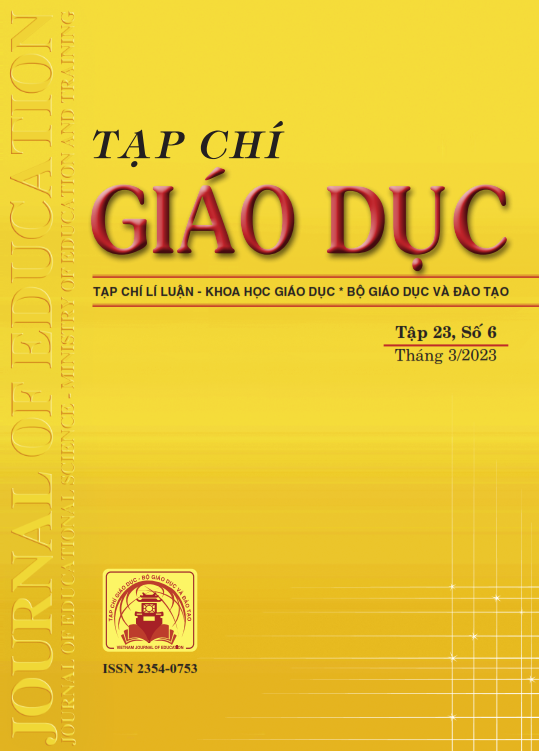Quốc tế hóa chương trình đào tạo từ góc nhìn của giảng viên tại Đại học Quốc gia Thành phố Hồ Chí Minh
Tóm tắt
Internationalization of training programs has become a popular trend among universities worldwide. Many studies have also confirmed that a successful internationalized training program requires internationalization of the teaching staff. However, at present, the issue of developing teaching staff to meet the requirements of internationalization of training programs has not received adequate attention at some universities in Vietnam. This slows down the internationalization of training programs at tertiary level in Vietnam compared to other countries in the world and at the same time, the results have not been as expected. Through this article, the author focuses on training program internationalization regarding the teaching staff, including: (1) analyzing some of the key factors in the internationalization of training programs; (2) describing some aspects of internationalization of training programs in some faculties at Vietnam National University, Ho Chi Minh City. Subsequently, the article proposes a number of measures related to the development of the teaching staff to improve the effectiveness of the internationalization of training programs, helping to meet the requirements of the training program internationalization at the examined university in particular, contributing to improving the internationalization efficiency of the national education system in general.
Tài liệu tham khảo
Bond, S. L., Qian, J., & Huang, J. (2003). The Role of Faculty in Internationalizing the Undergraduate Curriculum and Classroom. CBIE Research Millennium Series No. 8. ED549872.
Carter, H. M. (1992). Bridges to the Future: Strategies for Internationalizing Higher Education. Association of International Education Administrators. https://eric.ed.gov/?id=ED362112
Davies, J. (1992). Developing a strategy for internationalization in universities: towards a conceptual framework. In C. Klasek (Ed.) Bridges to the future: Strategies for internationalizing higher education, (pp. 177-190). Carbondale: Association of International Education Administration.
Đại học Quốc gia Thành phố Hồ Chí Minh (2016). Kế hoạch chiến lược của Đại học Quốc gia Thành phố Hồ Chí Minh 2016-2020.
Đại học Quốc gia Thành phố Hồ Chí Minh (2021). Kế hoạch chiến lược của Đại học Quốc gia Thành phố Hồ Chí Minh 2021-2025.
European Union (2015). Internationalisation of higher education: A study for the European parliament. EU.
Internationalisation of higher education: A study for the European parliament.
Knight, J. (2011). Education Hubs: A Fad, a Brand, or an Innovation. Journal for Studies in International Education, 15 (3), 221-40.
Knight, J. (2012). Internationalization: Three Generations of Cross border Higher Education. Indian International Center.
Leask, B. (2009). Using formal and informal curricula to improve interactions between home and international students. Journal of Studies in International Education, 13(2), 205-221.
Leask, B. (2015). Internationalizing the curriculum. Routledge.
Nguyễn Thị Quỳnh Hương (2020). Phát triển đội ngũ giảng viên tại cơ sở giáo dục đại học tại Việt Nam. https://tapchicongthuong.vn/bai-viet/phat-trien-doi-ngu-giang-vien-tai-co-so-giao-duc-dai-hoc-tai-viet-nam-68005.htm
McKellin, K. (1996). Anticipating the Future: Workshops and Resources for Internationalizing Post-Secondary Education. Vancouver: B.C. Centre for International Education.
Paige, R. M. (2003). The intercultural development inventory: A critical review of the research literature. Journal of Intercultural Communication (SIETAR-JAPAN), 6, 53-61.
Tải xuống
Đã Xuất bản
Cách trích dẫn
Số
Chuyên mục
Giấy phép

Tác phẩm này được cấp phép theo Ghi nhận tác giả của Creative Commons Giấy phép quốc tế 4.0 .












